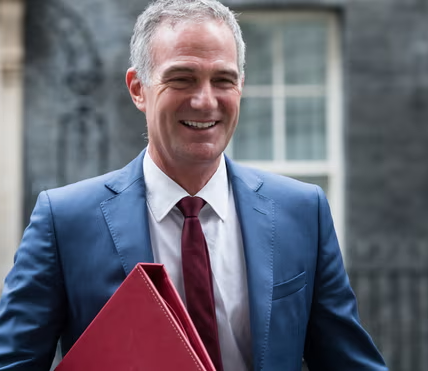Financial experts have claimed Rachel Reeves risks effectively criminalising ordinary people for simply helping their children and grandchildren.

Rachel Reeves’ plan will penalise grandparents who support struggling families, claim critics (Image: GETTY)
Rachel Reeves‘ reported radical plan to reform inheritance tax (IHT) by dramatically curbing the long-standing £3,000 annual tax-free gift allowance is a “daft” idea which will effectively penalise grandparents who support struggling families, critics have claimed. The Chancellor is said to be preparing to overhaul the inheritance tax system by replacing the current £3,000 annual exemption with a lifetime cap on tax-free gifts.
Every cash transfer to children or grandchildren would count towards that cap, regardless of size or purpose, meaning even modest birthday gifts could eventually be caught by the tax net. Once the cap was reached, any further support would be taxable. However, financial experts warned that Ms Reeves risks effectively criminalising ordinary people for simply helping their children and grandchildren.
Scott Gallacher, Director at Leicester-based Rowley Turton, said: “I can’t believe the Chancellor would be daft enough to cap family gifts. All it would achieve is turning grandparents into overnight tax evaders, with cash gifts to children and grandchildren rocketing to avoid what many already see as an unfair tax.”
Benjamin Beck, a financial coach, said the policy would strike at the heart of intergenerational support. “Family gifts can be the difference between affording a deposit, keeping up with bills, or accessing good education.
“Tightening the allowance risks cutting off this support at the very moment it is needed most. This will affect the many, not just the few – which is surprising considering Labour’s slogan is ‘for the many, not the few’.”
David Stirling, an adviser at Mint Wealth, went further, describing the move as “a blatant attempt to tax the Bank of Mum and Dad”.

Farmers in the United Kingdom have been vociferous in their criticism of Ms Reeves (Image: Anadolu via Getty Images)
He added: “From everyday living expenses to help with property deposits, this support is essential. Reeves risks taxing the very transfers that hold families together.”
Alongside this, Ms Reeves has ordered a review of the “seven-year rule”. At present, larger gifts fall outside IHT if the donor survives seven years, and taper relief steadily reduces the tax owed between years three and seven.
Officials are examining options to extend that period to a full decade or abolish taper relief altogether, ensuring that far more family gifts remain within scope for tax.
This is in addition to other measures Reeves has already announced. In her first Budget last October, she froze the IHT nil-rate band at £325,000 until 2030, dragging more middle-income households into liability as property prices rise.
She confirmed that inherited pensions will be subject to IHT from 2027, closing what had been a tax-free loophole.
And she unveiled a £1 million cap on agricultural and business property reliefs from 2026, forcing family farms and small businesses above that threshold to pay 20% inheritance tax. That policy alone sparked furious tractor protests and mass lobbying from the National Farmers’ Union.
With income tax, VAT and National Insurance rises ruled out by Labour’s manifesto pledges, critics claim Ms Reeves sees inheritance tax as a soft target.
HMRC collected £3.1 billion in IHT receipts between April and July 2025 – £200 million more than the year before – and forecasts suggest revenues will hit £9.1 billion this financial year and more than £14 billion by the end of the decade.
The Treasury is understood to believe there is still plenty of scope to extract more from frozen allowances, pensions and family gifts.
However, advisers say that for ordinary households, the cumulative effect is toxic. Anita Wright, a chartered financial planner at Ribble Wealth, said: “Any move to clamp down on gifts risks hitting families at the very moment when intergenerational support is most vital.
“The key is to plan early and make use of existing allowances before they disappear. Beyond that, trusts, insurance and structured succession planning will be essential.”
Opponents argue Ms Reeves is picking the wrong fight. For decades, modest transfers between generations have been treated as part of family life, not as taxable events. By dragging them into the scope of inheritance tax, the Chancellor is accused of undermining the very support networks that younger families depend upon.


